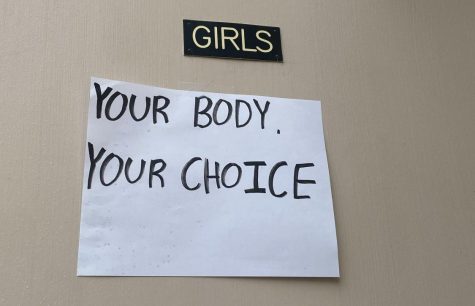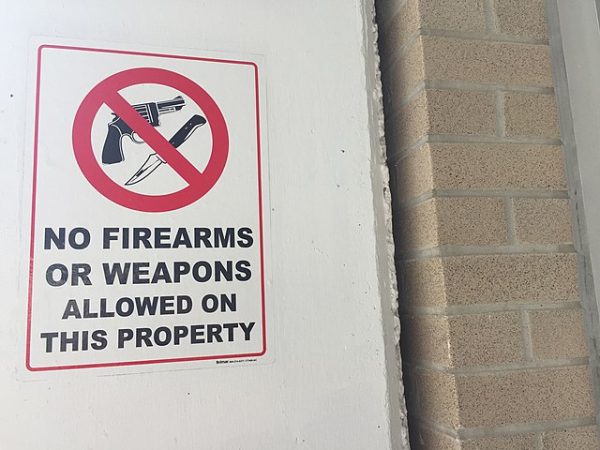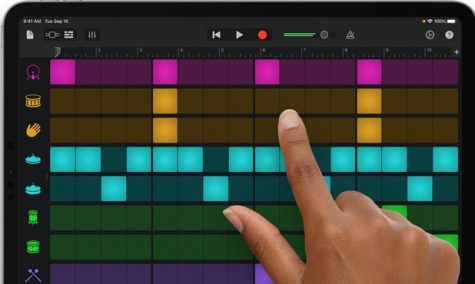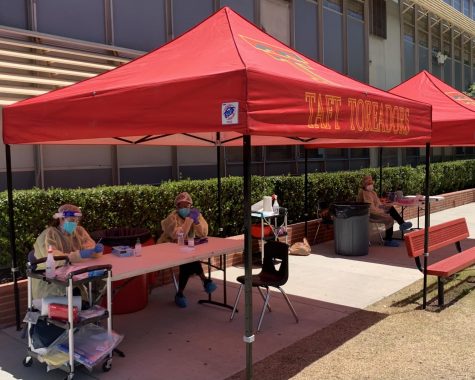“They’re scared to be dress coded”: Taft Senior shares opinions about school’s rules for attire, suggests it’s time for change
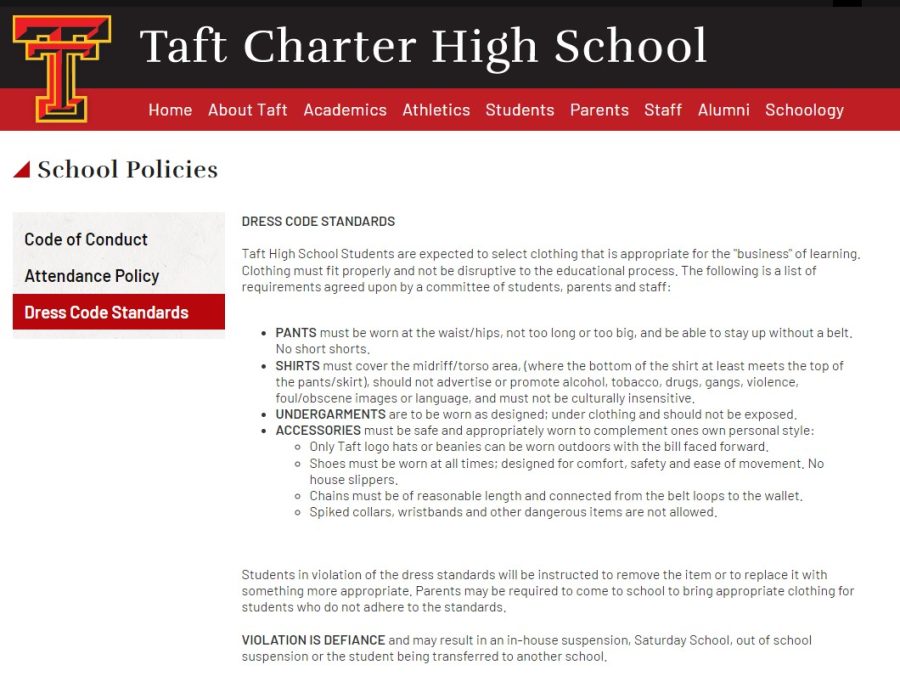
Taft’s posted Dress Code
As students at Taft Charter High School return to campus for the 2021-2022 school year, many face the inevitability of being dress-coded. The regulation of “appropriate” attire as well as the level of enforcement against those disobeying rules has faced criticism in recent years. Jessica, a senior at Taft High School whose name is being changed at her request, is one of countless who have felt negatively impacted by the standards the school has set for clothing.
LAUSD-specific dress code policies were last updated almost 12 years ago on December 15, 2009. Detailed in a bulletin issued by Jim Morris, a male Chief Operating Officer, these restrictions are in place to help “maintain an effective learning environment and to keep the focus of the classroom on learning” and leaves a lot of freedom to individual schools to specify what is approved.
Taft rules expect students to dress in a way “appropriate for the ‘business’ of learning,” suggesting that clothes not only fit properly and cover areas such as the midriff and torso but also refrain from promoting drugs, violence, or foul language/images.
Jessica recounts one memorable instance where she was dress coded. “The first thing that happened was the short shirt and the short shorts, apparently I had. That made me uncomfortable ‘cause a male told me to cover up and if he sees me again with that he would dress code me and I just covered up the whole day and it was really sweaty and hot.”
On warm days where the weather is 90 degrees or higher, students have no choice but to wear what some may perceive to be more revealing clothing in order to avoid overheating.
The enforcement of dress code is a problem for many students. Most feel it is too harsh and focuses more on targeting women than men because of women’s varying body types. Jessica agrees.
“Maybe because we’re just women and technically women ‘should’ cover up and we attract more males’ attention,” she says. “But technically all the guys don’t have a problem with it, it’s just the teachers who have a problem with it.”
The constant threat of being dress coded scares students, especially female ones, into covering up to avoid confrontation. They aren’t able to freely express themselves because they fear being chastised for it. There is also a shame in having to change, specifically in front of administrators. Jessica was forced to put on a t-shirt in front of a male staff member, making her feel embarrassed. So why are staff so strict in their enforcement?
“I’m not sure, honestly, we should have our own opportunity to show our body, I mean it’s our body and we’re just trying to style it,” Jessica says.
Jessica, along with other students at Taft High School, believes it’s time for rules to become less restrictive in order to prioritize comfort and allow people to feel okay expressing themselves.
“[Students] are scared to be dress coded so they try to cover up before they get dress coded or they don’t want to come to school with the outfit they love cause they know they’re going to get dress coded for it.”
Junior at Taft Charter High. I love music, writing, and reading.






